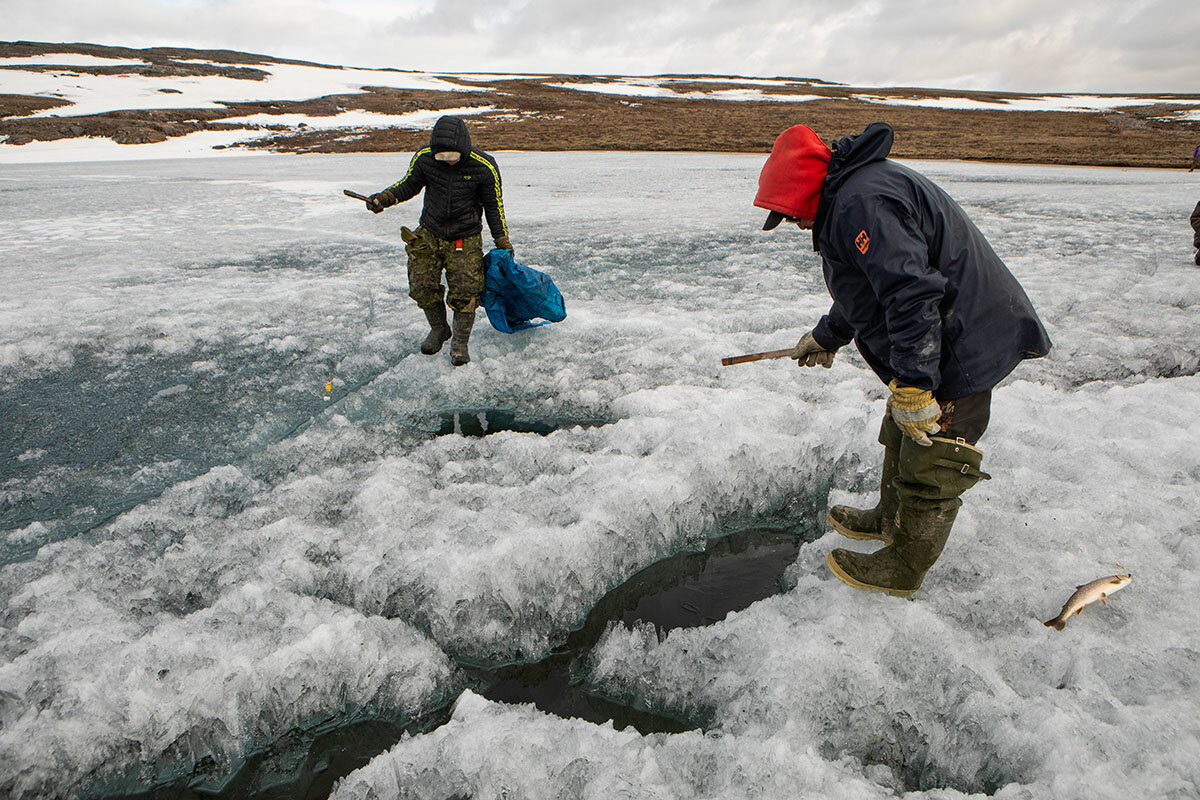Witness to an auspicious day in the Arctic

 Sara Miller Llana
Sara Miller Llana
“We did it,” exclaims Jimmy Ullikatalik from his office at the Spence Bay Hunters and Trappers Association in Taloyoak. “Wow, man, I can’t believe it.”
Photographer Melanie Stetson Freeman and I are here in his office in the northernmost community in mainland Canada. We’re on assignment for a climate project. And on this day, Mr. Ullikatalik just received notification that his organization has officially been renamed Taloyoak Umarulirijigut Association. In Inuktitut, “umarulirijigut” means “wildlife managers.”
The name change “has been a dream of the members of the community for 20 years,” he says, ever since the town changed its name in 1992. Taloyoak was once known by its colonial name, Spence Bay. The Inuktitut name means “large caribou hunting blind.”
It’s part of a reclamation of Indigenous language across Canada, and the timing couldn’t be more perfect. Today, Canada marks National Indigenous Peoples Day, and Mr. Ullikatalik’s organization was tasked with harvesting the food for a community barbecue.
National Indigenous Peoples Day coincides with the summer solstice because it’s the longest day of the year and marks a new season of life. But June 21 in the Arctic doesn’t exactly feel like the first day of summer.
Joining the hunters to fish lake trout and landlocked char, we suit up in fur-lined parkas, seal-skin mitts, snow pants, and insulated rubber boots and head to the ice. As we return in all-terrain vehicles well past dinnertime in the high sun, many locals are just setting out.
As I write this, it’s exactly midnight, the first minute of “summer.” Up here the sun won’t ever set. Young children, bundled in hats and gloves, are chasing one another at a playground in front of the home where we’re staying.
Hunter Abel Aqqaq explains that up here daily patterns conform to light and darkness, not mealtimes or work hours established from the “south.” “We eat when we are hungry and sleep when we are tired,” he says.
That means these hunters might ice fish until midnight or later, when the fishing is better. But this National Indigenous Peoples Day, they are doing so under a banner that recognizes their traditional Inuit language and culture, as Taloyoak’s “umarulirijigut.”




